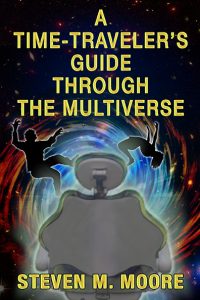‘Droids vs. robots…
I have many complaints about the Star Wars and Star Trek movies. For the first, I’ve mentioned before in this blog that it’s really fantasy, although many fans and critics call it sci-fi. But let’s forget about that glaring disconnect and focus on something that Dr. Asimov would probably have liked cleared up: ‘Droids vs. robots.
“Robot” is the more general term. It wasn’t created by the inimitable Isaac but by Karel Capek in his 1920 play RUR (for Rossum’s Universal Robots, the English subtitle), yet sci-fi master Asimov made the term famous in his robot novels (Caves of Steel and The Naked Sun are also excellent mysteries), books which can now be included in his extended Foundation series. I insist that the term should be used for any device, stationary or otherwise, that can replace human functions. (Just ask UAW for some examples.)
R2-D2 is a robot running on wheels (many do). C-3PiO is also a robot (I prefer that rendering of its name because the P is Pi in Star Wars, a vocal error mixing Greek with English—P in Greek is “rho”). Neither one is an “android” like Isaac’s Daneel Olivaw, although I can’t remember if Isaac uses that word. An android is a much more complicated robot designed to act and look like a human. And the word “’droids” is basically Star Wars slang (hence the single quote) used incorrectly for both (although I suspect that George Lucas stole it from the sci-fi literature like he did many other things—the Foundation and Jedi warriors among them).
R2-D2 can follow humans around like an intelligent waste-basket shaped Roomba or canister vacuum cleaner, and it might be more sophisticated than your laptop. It’s used to add fire control to Luke’s Starfighter, but it’s still a primitive robot inre its human qualities. C-3PiO is very much like a drunken human, staggering around looking for people who need some translations done, but that robot is not an android either.
An android is an artificial human, a specialized machine like Daneel or Star Trek’s Data. As I stated above, I have trouble with that last series too, but at least Roddenberry outdid Lucas when it comes to androids. Roddenberry’s plot devices weren’t stolen from Asimov and Burroughs like Lucas’s, but they were mostly created to make things easier for the producer/director. The transporter, for example, smacks of magic, and it’s just used to beam personnel up and down from planets. So why do they need shuttles then (definitely in the realm of possibility—NASA used to have them) and a shuttle bay aboard the Enterprise? And while communicators are the harbingers of cellphones, they can do so much more in the series that it’s a fantasy gizmo too, something akin to Harry’s wand.
If you’re looking for honest-to-gosh androids in movies, you can forget about Will Smith’s movie version of I, Robot too. Except for a few names, it has nothing to do with Asimov’s robot novels, although the bad guys are indeed robots, not androids. But there are a few movies that stand out when it comes to androids AKA artificial humans: The androids in Alien and Aliens and those in Blade Runner exhibit both humans’ good and bad qualities (yes, Deckard was an android—Ridley Scott directed both Blade Runner and Alien).
Neither androids nor robots are ubiquitous in my sci-fi. The latter have some cameo appearances (Come Dance a Cumbia…with Stars in Your Hand! starts with a robot-bar, and one also appears in Soldiers of God as a hotel greeter and information center), and, if you look closely, you might find a Daneel-type that’s a main character in Rogue Planet. A. B. Carolan’s Mind Games has a few android armies. That’s about it.
My general opinion is that robots are better than androids, though. Humans are just too complicated to copy. Clones are cheaper. (See the “Clones and Mutants Trilogy.”)
***

Comments are always welcome!
A Time-Traveler’s Guide through the Multiverse. Enrico Fermi wasn’t the last physicist who was both an experimental and theoretical genius, but Professor Gail Hoff will never receive the Nobel Prize. She wants to travel through time but discovers she can only go forward. She goes time-traveling through several universes of the multiverse, never to return to her little lab outside Philly. Jeff Langley, her jack-of-all-trades electronics wizard, accompanies her. Their escapades, both amorous and adventurous, make this sci-fi rom-com a far-out road-trip story filled with dystopian and post-apocalyptic situations, first encounter, robots and androids—all that and more await the reader who rides along. (And, if you’re looking for androids, there’s a whole world of them here—but no humans until Gail and Jeff drop by.)
Available wherever quality ebooks are sold.
Around the world and to the stars!
